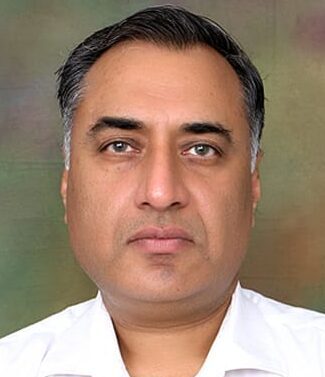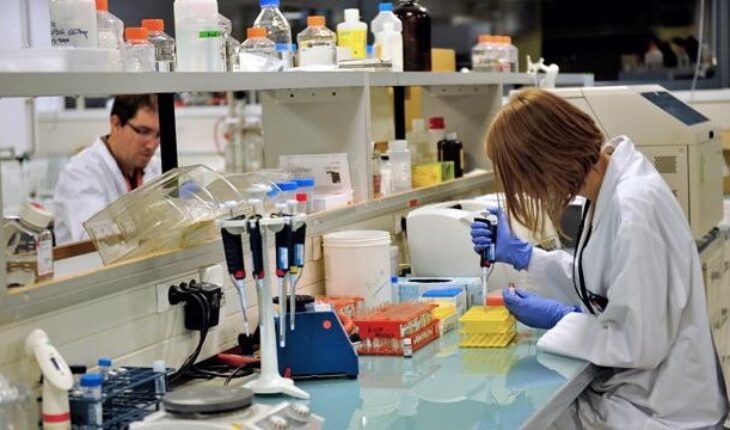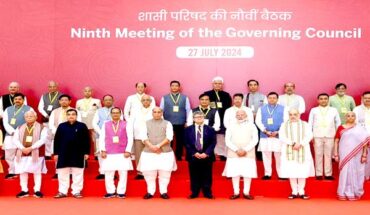

Pharmaceutical industry in India is characterized by fierce competition and evolving market dynamics, thereby driving companies to adopt growth strategies to secure their position and achieve sustainable success in the highly regulated industry. More than ten pharmaceutical companies became part of top 100 pharmaceutical companies in India in about two decades. In the growth of these companies, certain key factors remained constant: Owners’ profile, product portfolio or therapy segments, access to capital, distribution network, and mergers & acquisitions. Authors such as Marcin W. Staniewski (2016), Eva de Mol (2019) have attributed successful entrepreneurship to the contribution of business experience and knowledge. Akinori Nakashima et al. (2023) shared a growth model for pharmaceutical companies based on regional focus and inter-regional alliances.
Prominent recent entrants which figured among top 100 pharmaceutical companies in 2023 included Eris Lifesciences founded in 2007, Linux Laboratories (2007), La Renon Healthcare (2007), KLM Laboratories (2007), MSN Laboratories (2003), Corona Remedies (2004), Icon Lifesciences (2005), Reliance Lifesciences (2001), Lloyd Healthcare (2011), Koye Pharmaceuticals (2013), and Integrace Health (2018). Three more firms – Reliance Lifesciences (Reliance group entity), Shreya Lifesciences (established in 2001 as a subsidiary of Shreya Corporation PJSC that had operations in Russia since 1993), and Curatio Healthcare (established in 2005) figured among top 100. Curatio Healthcare was sold to Torrent Pharma for about Rs. 2,000 crore in September 2022. These high-growth companies figured among top 100 pharmaceutical companies within two decades of their existence, and some of these companies came into existence in just last decade.
One key driver – founders’ profile including experience, figures prominently in all cases. Amit Bakshi as founder of Eris Lifesciences, had more than 20 years’ experience of working in well-known domestic and multinational pharmaceutical companies. Pankaj Singh, La Renon Healthcare founder had worked in pharmaceutical industry for more than two decades, including Business Head, India of Claris Lifesciences for seven years. Dr. Kirtikumar L. Mehta, as a co-founder of Corona Remedies, had more than 40 years of experience in the medicine practice. Kedar Rajadnye of Integrace Health had served in pharmaceutical and consumer products’ industry for more than 21 years, including 14 years with Piramal Healthcare, and in HUL. Founders of Koye Pharmaceuticals – Preetish Toraskar and Ravindra Y. Shenoy joined hands in 2013, and both of them had extensive experience in pharmaceutical industry at different levels. Founders of Linux Laboratories – Keerthivasan K, Parameswaran Hariharan and Sundharam Anand Kumar, had a collective experience of more than 60 years in pharmaceutical and allied areas. Jay Kaushik of Curatio Healthcare had started his journey as a Medical Representative in a pharmaceutical company. His Co-founder G. K. Ramani had more than 30 years of experience in pharmaceutical sector. Sohan Dadhich of KLM Laboratories possessed experience of two decades in pharmaceutical sector only. Dr. M. S. N. Reddy of MSN Laboratories served as the Head of R&D in a prominent pharmaceutical company. Sujit Kumar, founder of Shreya Lifesciences had extensive experience of pharmaceutical marketing in Russia and CIS countries. Narayana Rao Vikram of Lloyd Healthcare had started his journey as Medical Representative. Key characteristics of founders included ‘extensive industry experience’ in addition to ‘diverse specialization in qualification of co-founders’. This might have helped the founders in understanding scientific and business needs, identification of opportunities for growth, assessment of risks, building relationship with suppliers and customers, and in developing understanding of regulatory and compliance issues.
Product Portfolio/Therapy Segments of these fast-growth pharmaceutical companies provide interesting insights. Some of these companies undertook only few therapy areas as their concentrated business zones to grow and grab major market share, e.g., Corona Remedies targeted Women’s Health/Gynaecology business, and are considered leaders in those segments. Integrace Health focused on Gynaecology and Pain Management therapy segments. Curatio Healthcare focused upon its Cosmetic dermatology business with 50 brands and the company generated 82 per cent of its revenue from its dermatology segment. Just 10 brands of the company generated 75 per cent of its total revenue. Lloyd Healthcare focused on two therapy segments namely Cardiology and Diabetology, as more than 90 per cent of their products belong to these two categories. Eris Lifesciences focused on six therapeutic categories out of which branded formulations in Cardiology, Diabetes, and Neurology, contributed almost 69% of total revenue. The company maintained its National List of Essential Medicine (NLEM) exposure to approximately 7 per cent only, and majority of their products fall in non-NLEM category. In 2008-09, the company was ranked 29 and 224 in Cardiology and ENT category respectively (IMS ORG data). It became number 1 in both categories by June 2012. La Renon Healthcare also targets Chronic Disease Management through focusing on categories such as Nephrology, Critical Care, CNS, Cardiology, Respiratory, Urology, and Gynaecology. Same is the case for Corona Remedies which derived 70 per cent of revenue from Chronic Segment. In FY22, top 5 therapeutic categories contributed 79 per cent of the company’s total net sales.
Top therapeutic categories for these fast-growing companies were: Cardiology for 7 companies, anti-infectives for 3 companies, Gastroenterology for 5, respiratory for 4 companies, diabetology for 7 companies, Pain management for 3 companies, nutritional supplements for 4, dermatology for 6 companies, neurology for 6 companies, and gynaecology/women’s health for 6 companies. Highly valued Therapy segments on Moving Annual Total (MAT) basis as per March 2023 IQVIA Report were: Cardiac with a value of Rs. 2,082 crore, followed by anti-infectives (Rs. 2,061 Cr.), Gastro (Rs. 1,801 Cr.), Respiratory (Rs. 1,579 Cr.), Anti-Diabetic (Rs. 1,528 Cr.), Pain Management (Rs. 1,345 Cr.), Nutritional supplements (Rs. 1,285 Cr.), Dermatology (Rs. 1,102 Cr.), Neurology (Rs. 1,002 Cr.), and Gynaecology/Women’s Health (Rs. 868 Cr.). This reveals that all the recent entrants in pharma sector strategically chose to focus on operating in the therapy segments having high market value. Besides this, percentage growth rate of top therapy segments in March 2023 stood at 50 per cent for Anti-Infective, followed by respiratory (49 per cent), Pain Management (22 per cent), Gastroenterology (15 per cent), Cardiac (13 per cent), 11 per cent for neuro, and nutritional supplements, Gynae (10 per cent), anti-diabetic (8 per cent), and dermatology (6 per cent). Therefore, companies got benefited from the higher growth rate of their therapy segments. Reliance Lifesciences is one such company that explored the opportunities to operate in the market with some unique and differentiated category of product portfolio. Reliance Lifesciences started its business with plasma proteins (as mainstream business segment) due to its high market opportunity and expanded to biosimilars, regenerative medicines, and monoclonal antibodies, etc.
Access to capital is always considered as the major factor for the growth of new ventures. All recent entrants had access to capital, e.g., ChrysCapital took minority stake of 16 per cent in 2011 for $50 million in Eris Lifesciences. Sequoia Capital acquired 12.5 per cent stake for Rs. 100 Crore in first round of fund by La Renon Healthcare in 2015, and again, in 2021, the company raised Rs. 220 Crore from A91 Partners for 5-6 per cent stake at the valuation of $500 Mn. Most recently, on April 16, 2024 the company raised $70 Mn from ChrysCapital. Corona Remedies sold minority stake to Cydista Limited in July 2016, for Rs. 118 Crore. Other PE firms also invested in the company from time to time. Importance of Capital has been highlighted by K. V. Subramaniam, CEO of Reliance Lifesciences when he quoted in his book – Taking Wings and Winning – that Mukesh Ambani asked him – “Do you have guts to spend US $20 million? If you get there, I am ready to invest up to US $200 million”. Integrace Health is backed by True North, a PE firm that holds majority stake in the company since its operations in 2018. Singapore’s sovereign wealth fund Temasek Holdings acquired 40 per cent stake in the company. M&A deals and strategic alliances also contributed significantly to the growth of these companies, e.g., with financial backing, Eris Lifesciences acquired Strides Shasun’s India business, Zomelis brand of Novartis, and Oaknet Healthcare. La Renon acquired 51 per cent stake in API manufacturing firm Enaltech Labs in January 2022. Corona Remedies also acquired 3 formulation brands from GSK, and 2 from Abbott in FY17 and FY18. Integrace acquired Gynaecology business of Glenmark Pharma. Almost all these companies resorted to infrastructural investments, acquisition of brands, stake acquisition in other firms, joint ventures, and co-marketing arrangements.
Finally, these new entrants could establish a good distribution network in a short span of time, e.g., by mid-2023, Eris Lifesciences had a team of 1600+ sales representatives, and had 22 sales depots, 2059 stockists, along with access to 500,000+ retail chemists. Internationally, it has presence in more than 25 countries. Corona Remedies has a field force of more than 3,100 that covers 150,000+ clinicians. It has 20 C&F agents, more than 1,500 distributors. KLM Labs with a sales force of 1,200 has 700 distributors and over 30 consignees throughout the country. Given the market share of all recent entrants in Indian Pharmaceutical Industry, their field force, doctors’ coverage, and number of pharmacies reached, reflected their formidable strength.
Dr. Anil Kumar Angrish ,Associate Professor (Finance and Accounting),
Department of Pharmaceutical Management, NIPER, SAS Nagar (Mohali), Punjab
Rahul Sharma ,MBA (Pharm.), Department of Pharmaceutical Management, NIPER, SAS Nagar (Mohali), Punjab
Disclaimer: Views are personal and do not represent the views of the Institute.





